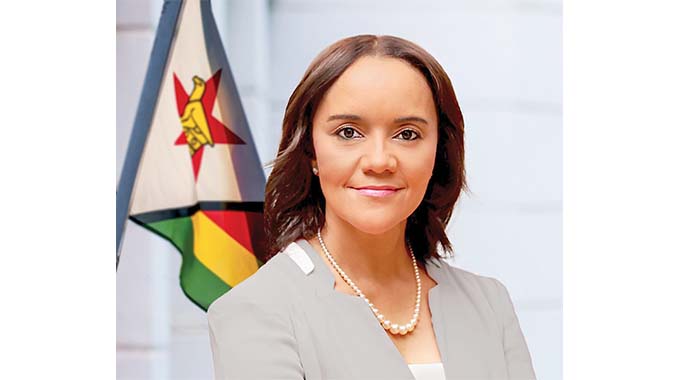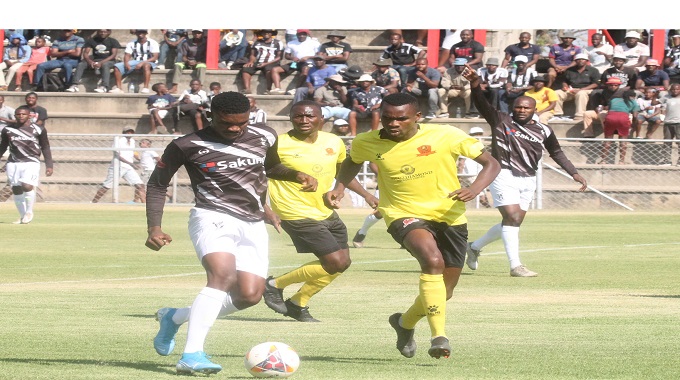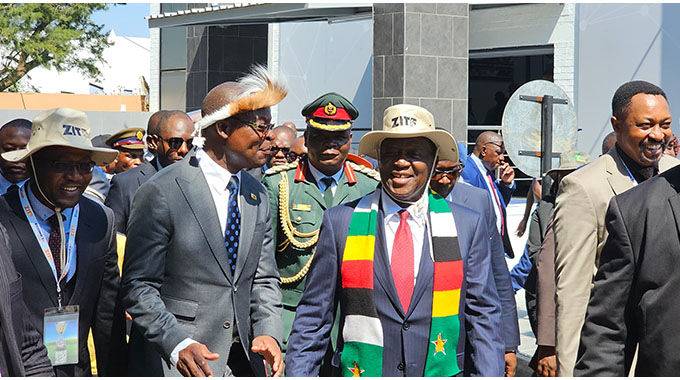Dismantle barriers to women’s political participation

Michael Magoronga, [email protected]
While the push for gender equity continues globally, the country’s recently held harmonised elections proved that there is still a long way to go as far as women’s political participation is concerned.
Only one woman, Mrs Elisabeth Valerio, the leader of United Zimbabwe Alliance (UZA), contested for the top job in the land, battling it out with ten other male opponents.
This was after Mrs Valerio had to fight a court battle which saw her enter the race late and left her with limited time to market her political brand.
Labour, Economists and African Democrats (LEAD) president Linda Masarira’s ambitions of running for presidency came crashing after she failed to raise the US$20 000 nomination fee required by the Zimbabwe Electoral Commission (ZEC).
In contrast, the 2018 plebiscite saw a record four women throwing their hats in the ring among the 23 candidates who sought to occupy the State House, a record number of candidates since independence.
Former vice-president Dr Joice Mujuru, Dr Thokozani Khupe, Melbah Dzapasi and Violet Manyacha were the female presidential hopefuls.
In the National Assembly, there were 70 female candidates compared to 637 men across the 210 constituencies, comprising 11 percent of candidates down from 14 percent in 2018.
Of these, only 20 women won parliamentary seats leaving a yawning gap of women representation in parliament.
Government factored in the women’s quota which saw 60 women being picked from across the provinces to fill in the gap.
Every province also elected a youth under the youth quota system, meaning there are 10 youths representing the youths in parliament. Only three provinces seconded female youth representatives.
In Senate and provincial councils, the Government implemented the “zebra system” which ensures equal representation of males and females.
Out of 60 senatorial seats, 37 are women while in the provincial councils which are made up of 100 members across the country, 53 are women, thanks to the zebra system.
Chief Nonhlanhla Ndube of Filabusi is the only female chief in Zimbabwe and she did not make the list of the 16 chiefs who were seconded into the senate.
In the run up to the 2023 polls, ZEC said there were six million registered voters in Zimbabwe with the majority of them being women.
Although ZEC said it was still compiling official figures, it is public knowledge that more women participated in the voting process as compared to their male counterparts, a sharp contrast from those that contested for seats.
Mrs Valerio said her participation was one experience full of mixed emotions ranging from sexism, name-calling and the joy of being associated with representing the rest of the women in the country.

Ms Elisabeth Valerio
“The constant sexist comments and other discrimination from opponents and even some members of the public were discouraging. However, I refused to let that get into the way of my message and vision for a better Zimbabwe,” she said.
As the only female candidate, Mrs Valerio was proud to represent women.
“The support I received from fellow women and Zimbabweans in general was overwhelming and inspiring. I was overwhelmed that I represented women and marginalised groups whose voices have not been heard in politics for far too long,” she said.
Mrs Valerio said going forward, there was a need for more initiatives to ensure promotion of gender equality and empowerment.
“I believe that women’s voices should not be tokenised or reduced to a single representative. We need to systematically and sustainably change that and include a wide range of women from diverse backgrounds and experiences,” she said.
Alderman Melody Chingarande has been in the political trenches for a while now and this perhaps explains why she is the only female councillor voted into the Kwekwe City Council out of the 14 available seats.
Four others will join her through proportional representation.
“It has become so worrisome that some men are in the habit of intimidating women, violating their rights, abusing them verbally, physically and even emotionally and sexually. At the end of the day women feel valueless and denigrated such that they lack the confidence they require to enter into politics. When campaigning, men choose to focus on the body of a woman instead of battling politically,” said Alderman Chingarande.
Men’s forums should be held to address such issues, she added.
“There should be forums for men where they are educated that women are not meant to sire children and do household chores only. They should be taught how to respect the choices of women. Women themselves should also be taught that leadership roles in communities are not designed for men alone.”
Alderman Chingarande said women, if given the opportunity, always give their best to counter the inferiority syndrome.
Zimbabwe Gender Commission (ZGC) Chairperson Commissioner Margaret Mukahanana-Sangarwe believes women participation in politics is still a far cry from the 50/50 representation required by the constitution.

Zimbabwe Gender Commission chairperson Mrs Margaret Mukahanana-Sangarwe
“As a commission, we are very much concerned about the failure by women to take up political offices. The trend since 2018 shows that we are actually regressing instead of progressing. The only way to achieve 50/50 representation is through legislation,” she said.
Commissioner Mukahanana-Sangarwe said there are two ways of solving the problem.
“The first one is to reserve say 105 seats specifically for women and another 105 for men. Women will fight for their half without men being involved given the disadvantages they face including lack of resources, stereotypes, patriarchal and other challenges. There should be that constitutional arrangement,” she said.
“The second option would be to go full throttle with the proportional representation as currently being implemented in the senate where the electorate get to vote for political parties which will in turn second female representatives using the zebra system.”
Women Coalition of Zimbabwe (WCoZ) Gweru Chapter chairperson, Ms Nozipho Rutsate said women should be given enough resources to allow them to equally compete with men, who are usually well resourced.
“In most cases, it’s not about putting women on the front line without giving them enough resources, it also opens them up for scrutiny. Women can perform their best if they are well resourced, they can do their job to the best of their ability. It’s unfortunate that we have a patriarchal society which believes women are for household chores. There is therefore a need for capacity building for both men and women to change that narrative,” she said.
The country should go out of its way to ensure that women are well represented in public offices, she added.
The problem is however, not peculiar to Zimbabwe.
According to the United Nations Women (2023) report, as of January this year, women represent 22,8 percent of Cabinet members heading ministries and leading policy areas globally.
The report says there are 13 countries in which women hold 50 percent or more of the positions of Cabinet ministers.










Comments